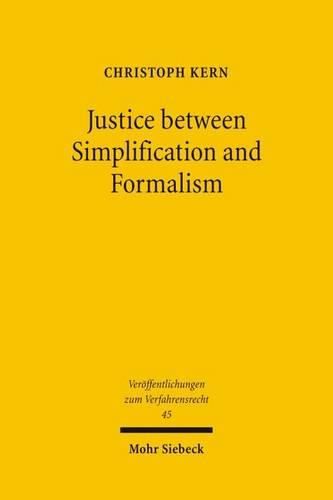Readings Newsletter
Become a Readings Member to make your shopping experience even easier.
Sign in or sign up for free!
You’re not far away from qualifying for FREE standard shipping within Australia
You’ve qualified for FREE standard shipping within Australia
The cart is loading…






A recent study in the field of comparative economics (or, more precisely, numerical comparative law ) constructed an index of procedural formalism of dispute resolution for more than 100 countries and analyzed the relationship between procedural formalism and certain aspects of quality of the judicial systems. The study’s results suggest a strong relationship between legal origins, formalism, and the quality of dispute resolution . Not surprisingly, the study closes with a recommendation for reform. What makes this study so important is not only its findings, backed by an amount of data which seems to be a guarantee for the study’s universal validity, but also the financial support of the World Bank - an indicator of the Bank’s interest in these questions. Similar studies in the area of banking, securities, and corporate law have received much attention from the legal community. However, for the recent study on civil procedure, this is not the case. Christoph Kern provides a first critical approach to the study from the perspective of a legal scholar. He does not suggest a mere re-coding , but focuses on the methodology and the underlying legal questions. After an extensive discussion of the input to the study, the author turns to the way the study combines the data and, in particular, how it interprets the results. He concludes that the study leaves a mixed impression and that, therefore, doubts remain as to its results and interpretation.
$9.00 standard shipping within Australia
FREE standard shipping within Australia for orders over $100.00
Express & International shipping calculated at checkout
Stock availability can be subject to change without notice. We recommend calling the shop or contacting our online team to check availability of low stock items. Please see our Shopping Online page for more details.
A recent study in the field of comparative economics (or, more precisely, numerical comparative law ) constructed an index of procedural formalism of dispute resolution for more than 100 countries and analyzed the relationship between procedural formalism and certain aspects of quality of the judicial systems. The study’s results suggest a strong relationship between legal origins, formalism, and the quality of dispute resolution . Not surprisingly, the study closes with a recommendation for reform. What makes this study so important is not only its findings, backed by an amount of data which seems to be a guarantee for the study’s universal validity, but also the financial support of the World Bank - an indicator of the Bank’s interest in these questions. Similar studies in the area of banking, securities, and corporate law have received much attention from the legal community. However, for the recent study on civil procedure, this is not the case. Christoph Kern provides a first critical approach to the study from the perspective of a legal scholar. He does not suggest a mere re-coding , but focuses on the methodology and the underlying legal questions. After an extensive discussion of the input to the study, the author turns to the way the study combines the data and, in particular, how it interprets the results. He concludes that the study leaves a mixed impression and that, therefore, doubts remain as to its results and interpretation.